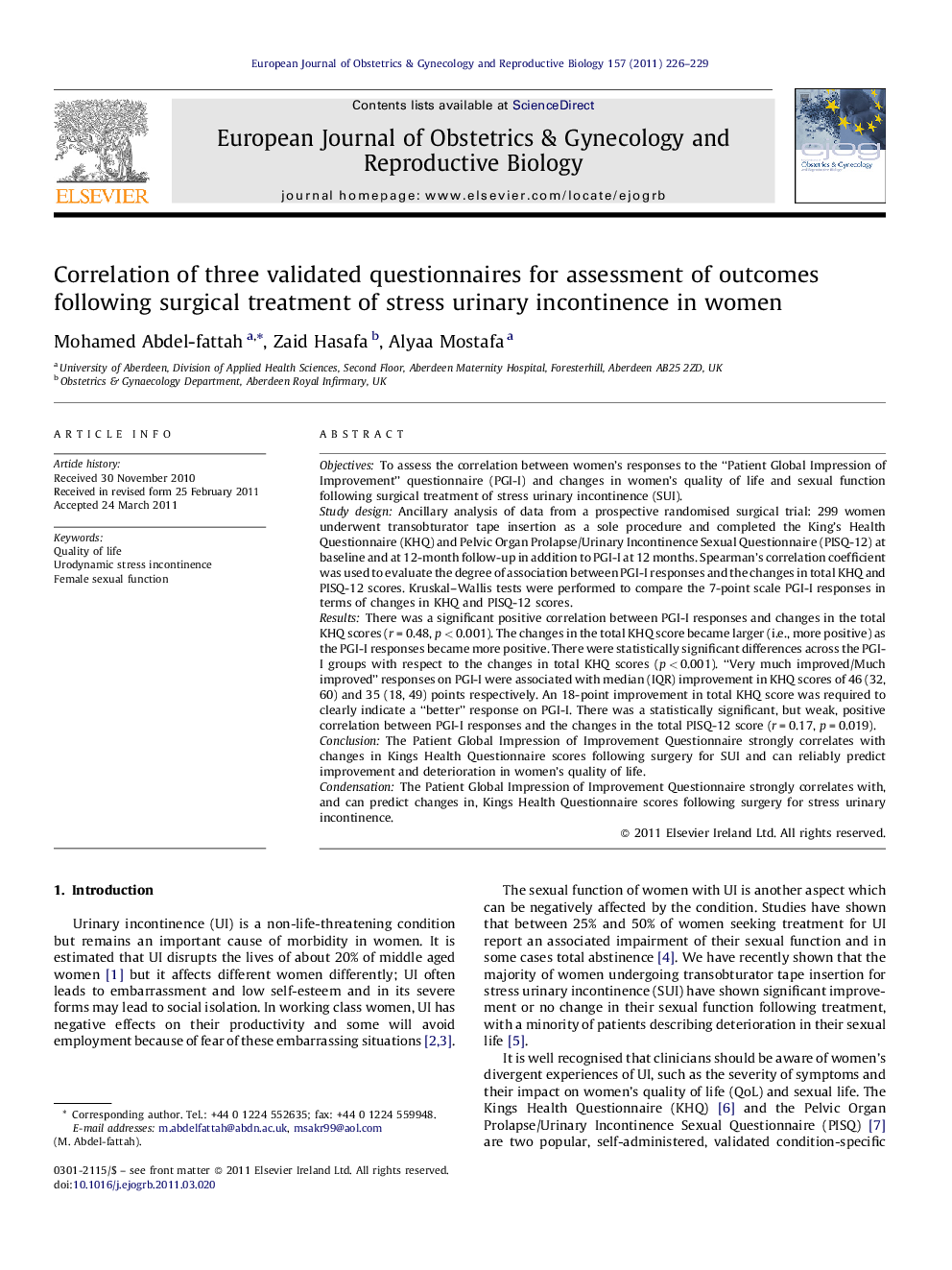| کد مقاله | کد نشریه | سال انتشار | مقاله انگلیسی | نسخه تمام متن |
|---|---|---|---|---|
| 6174923 | 1599838 | 2011 | 4 صفحه PDF | دانلود رایگان |

ObjectivesTo assess the correlation between women's responses to the “Patient Global Impression of Improvement” questionnaire (PGI-I) and changes in women's quality of life and sexual function following surgical treatment of stress urinary incontinence (SUI).Study designAncillary analysis of data from a prospective randomised surgical trial: 299 women underwent transobturator tape insertion as a sole procedure and completed the King's Health Questionnaire (KHQ) and Pelvic Organ Prolapse/Urinary Incontinence Sexual Questionnaire (PISQ-12) at baseline and at 12-month follow-up in addition to PGI-I at 12 months. Spearman's correlation coefficient was used to evaluate the degree of association between PGI-I responses and the changes in total KHQ and PISQ-12 scores. Kruskal-Wallis tests were performed to compare the 7-point scale PGI-I responses in terms of changes in KHQ and PISQ-12 scores.ResultsThere was a significant positive correlation between PGI-I responses and changes in the total KHQ scores (r = 0.48, p < 0.001). The changes in the total KHQ score became larger (i.e., more positive) as the PGI-I responses became more positive. There were statistically significant differences across the PGI-I groups with respect to the changes in total KHQ scores (p < 0.001). “Very much improved/Much improved” responses on PGI-I were associated with median (IQR) improvement in KHQ scores of 46 (32, 60) and 35 (18, 49) points respectively. An 18-point improvement in total KHQ score was required to clearly indicate a “better” response on PGI-I. There was a statistically significant, but weak, positive correlation between PGI-I responses and the changes in the total PISQ-12 score (r = 0.17, p = 0.019).ConclusionThe Patient Global Impression of Improvement Questionnaire strongly correlates with changes in Kings Health Questionnaire scores following surgery for SUI and can reliably predict improvement and deterioration in women's quality of life.CondensationThe Patient Global Impression of Improvement Questionnaire strongly correlates with, and can predict changes in, Kings Health Questionnaire scores following surgery for stress urinary incontinence.
Journal: European Journal of Obstetrics & Gynecology and Reproductive Biology - Volume 157, Issue 2, August 2011, Pages 226-229